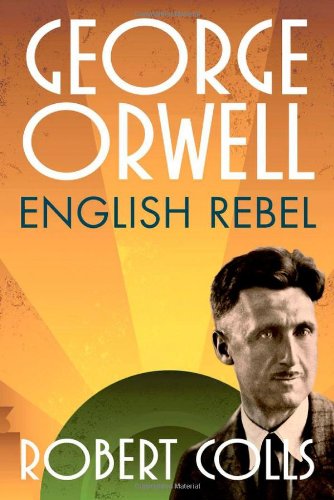
This article is from the Winter 2013 issue of New Humanist magazine. You can subscribe here.
Robert Colls’s George Orwell: English Rebel claims to be the first book about the Englishness of the oft-invoked saint of the decent left. It’s a topical subject – you can trace a line from Orwell’s claim that “those whose heart has not leapt at the sight of the Union Jack will flinch from revolution” to various kinds of “progressive patriotism”, reaching a nadir recently with Blue Labour. Orwell’s intense exploration of England from West Bletchley to Wigan is still unusual, as is the internationalism of his Englishness – formed as it was by experience of India, Burma, France, Spain and an intellectual fascination with East-Central Europe. He could sometimes sound like a bigot, but he was no little Englander.
The biographer is less curious about non-England, at one point bunching prophet of neoliberalism Friedrich Hayek and intransigent libertarian socialist Victor Serge together as “European conservatives”. Anyway, the “Englishness” pretext does not sustain the book, and the abundant English resonances in Nineteen Eighty-Four (with its references to everything from ’30s official architecture to “standard English” and the BBC) are left largely unexplored. English Rebel is rather a short and pedestrian academic study of the man and his ideas. Colls unfolds his narrative through descriptions of Orwell’s essays and books, related with donnish humour. The effect amounts to little more than common sense backed up with a formidable armoury of footnotes. There are sundry swipes at bien-pensant leftist types (oh, Marx, EP Thompson, Fredric Jameson, Raymond Williams), usually for being “unreadable”, though it’s hard to believe that these Open University perennials are genuinely impenetrable to this Professor of Cultural History. Orwell wrote about ideas while distrusting intellectuals, while Colls appears to distrust serious ideas for the sake of good intellectual form.
This attempt to assume the Orwellian bluffness is unfortunate, as Colls obviously knows better than to resort to the pub bore use of “Politics and the English Language” as a way of avoiding abstract thought. In one passage he explores how Orwell’s interest in politics as experience rather than policy resonates with Michel Foucault’s ideas of “governmentality”, yet soon moves on to ticking off feminists, Marxists or postmodernists for their unfair indictments of the great man.
Yet Colls also has a tendency to tick Orwell off. Not on, say, the little list of cryptos he supplied to MI5 (“Paul Robeson: very anti-white”. “Charlie Chaplin: Jewish?” “Stephen Spender: tendency towards homosexuality”. Lest we forget), or on his insistence that the USSR was bent on world domination at a time when Stalin wouldn’t even deign to assist the Greek communists in their civil war against an unpopular British-backed junta. No, Orwell is sternly told off for romanticising the POUM and the Anarchists in the Spanish Civil War, for not equipping Winston Smith with the right axioms to argue with O’Brien, for being too mean to Auden, for being a snob about 1930s suburbia, and for having written Nineteen Eighty-Four rather than Hans Fallada’s Alone in Berlin (“the novel Orwell would surely have preferred to have written, and might have written, had he stuck with realism”). Colls also reprimands Orwell for refusing to see his various northern hosts and guides as both socialists and members of the working class, but then Raymond Williams had made the same point in his own short book on Orwell, whose insights and possibilities contrast sharply with this glorified literature review.
More interestingly, Colls makes clear just how often Orwell changed his mind, shifting between positions – on war, capitalism and England, mainly – at a rapid rate, always refusing to acknowledge or apologise for the sudden shift. “Doublethink” is presented by Colls as Orwell’s parody of “dialectic”, that method by which Marxists apparently weasel their way out of reasoned debate, yet it might also be the key to Orwell’s inability to account for these transformations. Either the Second World War was an imperialist war and an anti-fascist one, or not; either the English were a people intrinsically “gentle” and one guilty of “exploiting their fellow creatures with a callous selfishness unparalleled in history”, or not; either 1930s British capitalism created desolation in Wigan and affluence in Uxbridge, or it didn’t. Admitting both was evidently too sophistic for Orwell. Eventually Colls’s rigorous attention to Orwell’s inconsistency and the sheer tedium of English Rebel, with its stolid trawl through the abundant existing literature, work together rather well. They build the impression of an author who should by now be left well alone. He should be read, of course – few writers of his or any era were as brave or as talented – but his incessant invocation, his secular sainthood, is revealed as an absurdity. After reading this, the English literary-political tendency to use Orwell as model comes to seem as bizarre as modelling yourself on Cobbett or Carlyle.
George Orwell: English Rebel by Robert Colls is out now (Oxford University Press £25.00)

